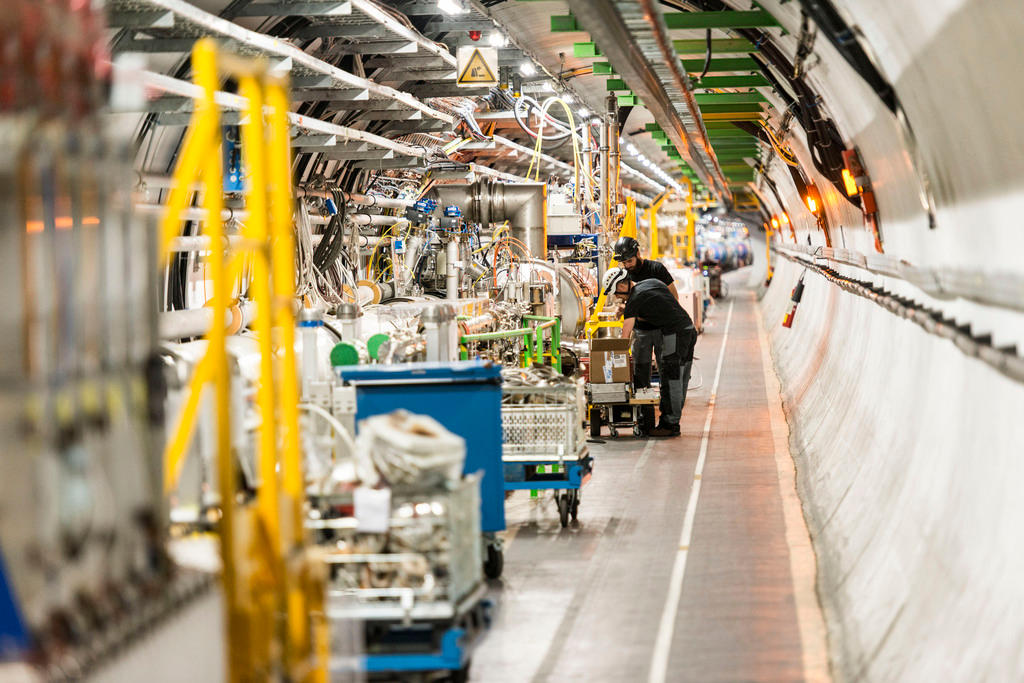
Scientists at CERN precisely measure the W-boson for the first time

Researchers at CERN have confirmed that they have successfully measured the mass of the W-boson particle using the Large Hadron Collider (LHC) particle accelerator. Their measurements confirm the predictions of the standard model of particle physics.
The scientists described their findings in a paperExternal link published on Monday in the European Physics Journal C.External link The mass measurement was based on approximately 14 million W-bosons which were registered in the LHC.
+ Read more about physics, particles, and prizes at CERN
According to Tacredi Carli, the Atlas CollaborationExternal link coordinator of the project, achieving such precise measurements was “a great challenge” due to the “demanding conditions present in hadron colliders”.
“It is an extremely promising indication of our ability to improve our knowledge of the Standard Model and to look for signs of new physics with the help of highly accurate measurements,” Carli said in a CERN press releaseExternal link.
A particle worthy of a Nobel Prize
The W-boson is one of the heaviest known particles in the universe. It was discovered at CERN, along with the Z-boson, in 1983. W- and Z-bosons mediate the so-called weak interaction – one of the four basic forces in physics. This force governs the behaviour of matter in our universe and plays a role even in radioactivity and the sun’s ‘burning’.
The discovery of the W-boson particle resulted in the Nobel Prize for physics being awarded to Carlo Rubbia and Simon van der Meer in 1984.
Some 30 years later, however, measuring its mass with high precision remains a major challenge, CERN writes. Studying the particle could nevertheless help scientists to better understand the standard model currently being used by physicists.
The standard model of particle physics describes all known elementary particles and their interactions. A more accurate measurement of the mass of the W-boson could also lead to a better understanding of the Higgs boson particle, discovered at CERN in 2012.

In compliance with the JTI standards
More: SWI swissinfo.ch certified by the Journalism Trust Initiative






























You can find an overview of ongoing debates with our journalists here . Please join us!
If you want to start a conversation about a topic raised in this article or want to report factual errors, email us at english@swissinfo.ch.